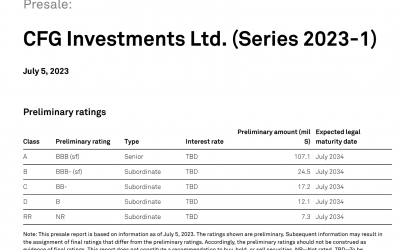supported by Notion AI
A Real Estate Investment Trust or REIT is a company that owns, operates, or finances income-generating real estate. REITs pool money from multiple investors to purchase and manage different types of properties, such as office buildings, apartments, hotels, warehouses, and shopping centers.
REITs are an attractive investment option for those who want to invest in real estate but do not want to buy and manage properties directly. They offer the benefits of real estate ownership, such as steady income streams and capital appreciation, without the hassles of property management.
There are two main types of REITs: equity REITs and mortgage REITs. Equity REITs own and operate income-generating properties and generate revenue from rent payments. Mortgage REITs invest in and own mortgages, providing loans to real estate owners and investors.
Equity REIT
Equity REITs own and operate income-generating properties and generate revenue from rent payments. They may specialize in different types of properties, such as office buildings, apartments, hotels, warehouses, and shopping centers. As the properties generate income, the REIT distributes a portion of that income to its shareholders.
Equity REITs are popular among investors because they offer the potential for both income and capital appreciation. Additionally, equity REITs provide diversification benefits due to their exposure to a variety of properties and tenants. However, like all investments, equity REITs come with risks, including the potential for declines in property values and rental income. Investors should carefully consider all risks and benefits before investing in equity REITs.
Mortgage REIT
Mortgage REITs invest in and own mortgages, providing loans to real estate owners and investors. The income of a mortgage REIT comes from the interest earned on these loans. Unlike equity REITs, mortgage REITs do not own physical properties. Instead, they invest in mortgages and earn a profit by charging a higher interest rate on the loans than they pay to borrow the money.
Mortgage REITs are popular among investors because they offer high dividend yields. However, they are also more sensitive to changes in interest rates than equity REITs. When interest rates rise, the value of the mortgages owned by the REIT may decline, which could lead to a decline in the REIT’s share price.
Investors interested in mortgage REITs should carefully consider the risks and benefits associated with this type of investment. Mortgage REITs can provide a high level of income, but they are also subject to the risks associated with investing in the real estate market and the potential for interest rate fluctuations.
Overall, mortgage REITs offer a way for investors to gain exposure to the real estate market and earn high dividend yields without owning physical properties. However, like all investments, investors should carefully consider the risks and benefits before investing in a mortgage REIT.
REITs and Getting Started
To invest in REITs, you can either purchase individual shares of a publicly traded REIT or invest in a REIT mutual fund or exchange-traded fund (ETF). Investment in REITs can be made through a brokerage account or other investment accounts.
REITs are required by law to distribute at least 90% of their taxable income to shareholders annually in the form of dividends. This means that investors can benefit from a steady stream of income from their REIT investments.
Overall, REITs provide an excellent opportunity for investors to gain exposure to the real estate market without having to own and manage properties directly. They offer the benefits of real estate ownership, such as consistent income streams and potential capital appreciation, while providing liquidity and diversification.






